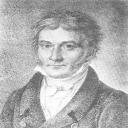Yahoo Answers is shutting down on May 4th, 2021 (Eastern Time) and beginning April 20th, 2021 (Eastern Time) the Yahoo Answers website will be in read-only mode. There will be no changes to other Yahoo properties or services, or your Yahoo account. You can find more information about the Yahoo Answers shutdown and how to download your data on this help page.
Trending News
Power rule proof for real exponents?
The power rule, d(x^a)/dx = ax^(a-1), can be proven very quickly using the properties of the exponential and natural logarithm functions. This is a beautiful but rather high level derivation. I was curious if anyone knows an "elementary" derivation.
Proving it in the case that a is a positive integer is an easy application of the binomial theorem and the definition of the derivative. It can be proven for a=-1 and the chain rule then gives negative exponents. For a=1/n, n a positive integer, it can be proven using the identity u^(n+1) - v^(n+1) = (u-v)(u^n + u^(n-1)v + ... + uv^(n-1) + v^n). From this and the previous cases with the chain rule, it's true for all rational exponents.
How do you extend this to real exponents? Is there some nice continuity argument, where (roughly) the formula holds for a dense subset and the derivative, as a function, is continuous, so the formula holds everywhere?
I looked in an analysis book for a proof but it just lists the exponential function one. I also briefly looked at Wikipedia, and it just stated the result without proof.
To reiterate, I'm interested in a proof of the general power rule, d(x^a)/dx = ax^(a-1), not the exponential function's derivative.
2 Answers
- ecapS trebliHLv 610 years agoFavorite Answer
Whittaker and Watson, "Modern Analysis", define exp(z) by the standard power series, as do
most later authors, incuding Strichartz. "The Way of Analysis" and Rudin, "Real and Complex
Analysis". The latter two also show that exp(t) is the unique solution of the differefferetial equation
y' = y, y(0) = 1. Whittaker and Watson prove via Dedekind cuts that exp(t) is continuous and
differentiable, and has period 2 pi i as an en entire function. This was already known to
Euler via DeMoivre's formula.
The simplest proof that d/dz e^z = e^e is surely via the power series or the differeniial
equation.


